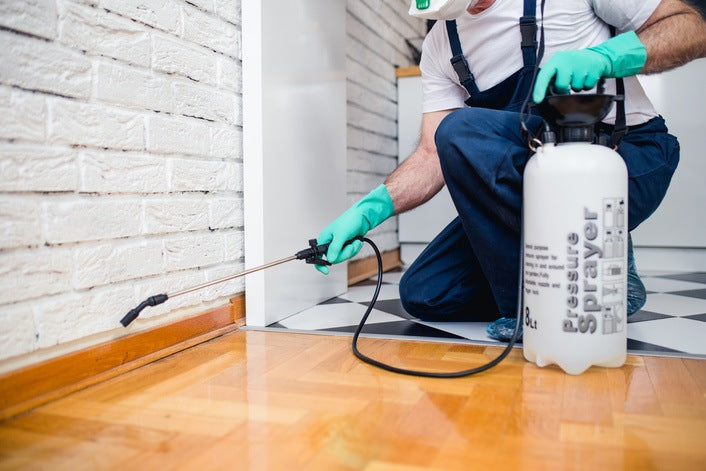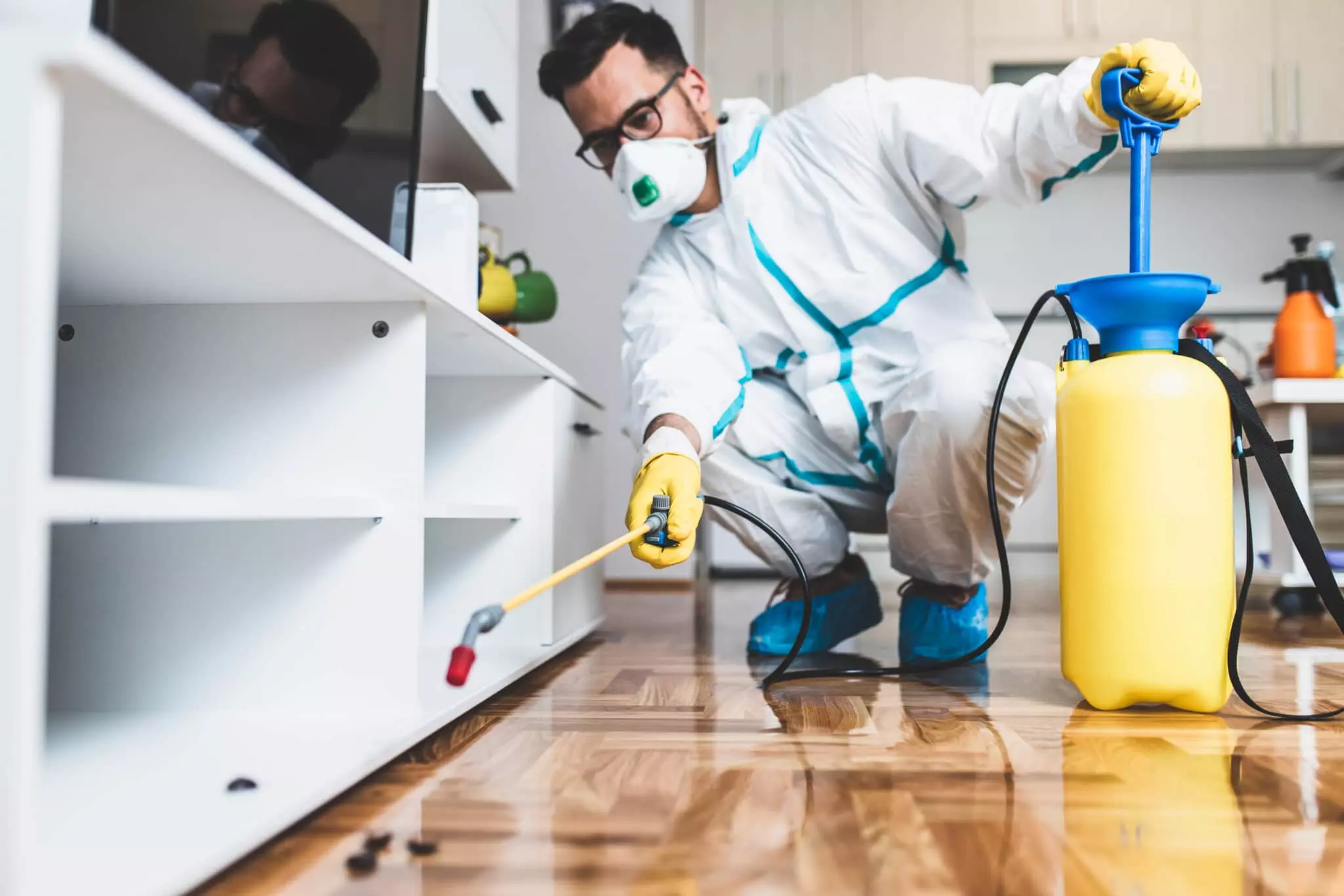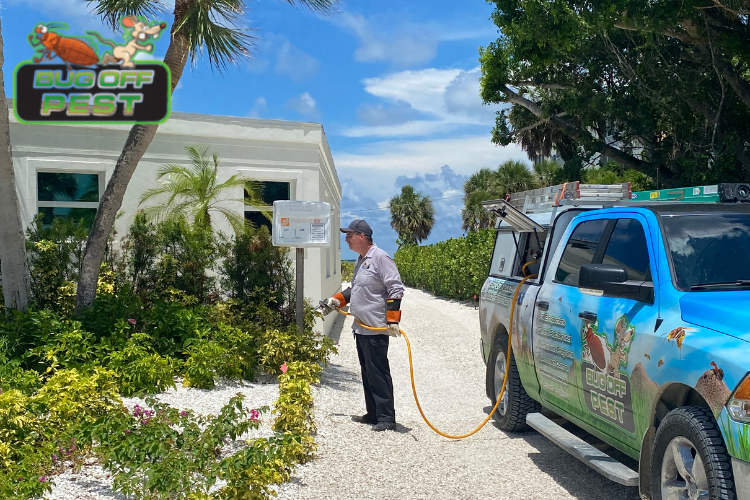Expert Wildlife Removal Services in Port Charlotte to Securely Remove Pests
Reveal the Importance of Parasite Control in Preserving a Healthy And Balanced Atmosphere and Therapy Techniques

The Duty of Parasites in Communities
Parasites, commonly checked out solely as hassles, play a diverse duty in communities that is vital for preserving eco-friendly balance. They add considerably to numerous ecological procedures, consisting of pollination, nutrition biking, and pest control. As an example, many insect types, such as bees and butterflies, are crucial pollinators for a large range of plants, which consequently sustains biodiversity and food production.
Furthermore, pests offer as target for many predators, creating a crucial web link in food internet. This connection guarantees the survival of different varieties and aids control populaces within environments (Termite treatment Port Charlotte). Decomposer insects, such as particular beetles and fungi, are important in damaging down natural matter, therefore enriching dirt and promoting nutrient recycling.
Conversely, while bugs can be valuable, their overpopulation or invasion into non-native atmospheres might interfere with these ecological functions. This complexity highlights the value of recognizing parasite dynamics, as effective pest management strategies should think about both their environmental functions and possible effect on human tasks. Stabilizing pest visibility while minimizing harm is important for protecting the integrity of environments and ensuring farming performance.
Health And Wellness Threats Related To Pests
The visibility of bugs in different environments expands past their environmental roles, as they also present considerable health risks to human beings and pets. Several parasites, consisting of insects, rodents, and bloodsuckers, are service providers of illness that can have serious wellness implications. Rodents are recognized to transmit hantavirus and leptospirosis, both of which can lead to serious respiratory and kidney issues, respectively.
Pests such as mosquitoes and ticks are infamous for spreading out vector-borne conditions like malaria, dengue high temperature, and Lyme illness. These diseases can result in high morbidity and mortality prices, particularly in at risk populaces. Additionally, bugs like vermins and cockroaches can aggravate allergic reactions and asthma, adding to respiratory system problems in individuals, specifically those with pre-existing conditions.
In addition, the existence of parasites can cause psychological stress and anxiety and discomfort, affecting overall wellness. Contamination of food and surface areas by bug droppings and remains can bring about foodborne health problems, highlighting the importance of keeping sanitary conditions. Therefore, recognizing the health risks associated with bugs is important in recognizing the requirement of reliable pest monitoring approaches to protect human and animal wellness.

Advantages of Efficient Parasite Control
Reliable parasite control is important for preserving a healthy and balanced and secure environment, as it consistently reduces the many threats associated with insect invasions. One of the main advantages of this post reliable pest administration is the reduction of health and wellness dangers. Bugs such as insects, roaches, and rats are vectors for conditions that can influence both pets and humans. By controlling these populations, the likelihood of disease transmission is substantially lowered.
Furthermore, reliable pest control safeguards property and structures from damage. Many parasites, like termites and woodworker ants, can trigger considerable architectural damages that may require expensive repair services. By proactively managing these infestations, house owners and services can safeguard their financial investments.
One more significant advantage is the enhancement of total high quality of life. A pest-free environment adds to mental health and reduces stress and anxiety connected with infestations. Reliable insect control cultivates a safer atmosphere for pet dogs and kids, ensuring that homes stay shelters free from disease-causing microorganisms and harmful chemicals.
Common Bug Control Strategies

In the world of parasite administration, numerous methods are employed to combat problems efficiently. These techniques can be generally categorized right into three main strategies: social, mechanical, and chemical controls.
Cultural control entails customizing practices to minimize bug reproduction, facility, and survival. This might include plant rotation, proper hygiene, and habitat adjustment, which collectively develop a setting much less favorable to pest proliferation.
Mechanical control uses physical methods to get rid of parasites (Termite treatment Port Charlotte). Techniques such as barriers, traps, and vacuum cleaners are typically used to straight eliminate insects from a location. This strategy is especially reliable for taking care of rats and insects without making use of damaging chemicals
Chemical control includes the application of pesticides to manage insects. These compounds can be categorized into insecticides, fungicides, and herbicides, each targeting details sorts of parasites. It is essential to use these chemicals judiciously, adhering to safety standards and laws to decrease possible injury to non-target types and the atmosphere.
Each insect control technique has its advantages and restrictions, and often, an integrated strategy incorporating several techniques yields the most effective outcomes in preserving a pest-free environment.
Sustainable Parasite Administration Practices
Sustainable pest monitoring methods include a range of methods created to reduce environmental influence while successfully managing pest populaces. These techniques focus on making use of environmentally friendly techniques over chemical pesticides, thus minimizing the danger of damage to non-target varieties, including helpful view it now bugs, wildlife, and human beings.
Integrated Bug Management (IPM) is a keystone of sustainable practices, combining organic, cultural, mechanical, and chemical tactics to manage parasites. Biological control includes presenting natural killers or bloodsuckers to suppress bug populations. Cultural techniques, such as crop turning and polyculture, interfere with pest life process and boost ecosystem strength.
Mechanical methods, such as traps or barriers, can properly stop parasite access without chemical intervention. Additionally, maintaining healthy ecosystems with appropriate dirt management, plant health and wellness, and biodiversity can normally minimize pest issues.
Education and understanding are essential parts, empowering individuals and communities to acknowledge bug hazards early and implement safety nets. Termite treatment Port Charlotte. By promoting an all natural approach that balances insect control with environmental stability, lasting parasite management methods not only secure structures and crops however likewise contribute to a much healthier setting for future generations
Verdict

Comprehending the health and wellness risks linked with bugs right here is important in recognizing the need of efficient insect management approaches to secure human and animal health.
Effective parasite control is necessary for maintaining a healthy and balanced and risk-free environment, as it continually reduces the numerous dangers associated with parasite invasions.Integrated Parasite Administration (IPM) is a keystone of sustainable techniques, combining organic, cultural, mechanical, and chemical techniques to manage bugs. By understanding the function of parasites, recognizing affiliated health and wellness threats, and utilizing varied treatment methods, a lasting method to pest monitoring can be achieved. Integrated Bug Monitoring (IPM) highlights an all natural methodology that reduces injury to useful microorganisms while successfully regulating pest populations.